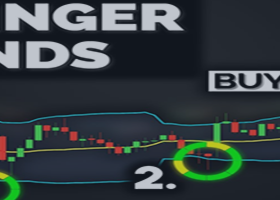
Sukuk market is the fastest growing segment in the Islamic finance industry
The global Sukuk industry possesses a huge growth potential in
the Gulf Cooperation Council (GCC) region and is expected to be one of the fastest growing
segments of the Islamic finance industry.
It is especially relevant for Dubai where Sukuks are expected to play an important role over the next decade in securing funds for the substantial line-up of new projects, a report by the Dubai Chamber of Commerce and Industry has stated.
The report uses UK Islamic Finance Secretariat (UKIFS) and Malaysia International Islamic Financial Centre (MIFC) data.
“The Dubai Chamber research note highlights the Sukuk market as one of the most attractive areas of Islamic finance that has attracted considerable interest from the business community worldwide. In addition, the Sukuk market has remarkable growth avenues that can be effectively tapped to support the growing investment requirements in various sectors,” said H.E. Abdul Rahman Saif Al Ghurair, Chairman of Dubai Chamber.
While the GCC and Malaysia have emerged as the main hubs for Sukuk issuance, the main issuers of the Sukuk in the global market are sovereigns, followed by corporates and government related enterprises. Countries such as Tunisia, Mauritania, Senegal and Oman are set to be key markets for Sukuks, Dubai Chamber observes in the research note.
However, Sukuk issuance is not limited to Islamic countries. In 2014, a number of high profile debut sovereign issuances are expected to take place in countries such as the UK, Ireland, and South Africa. It is further anticipated that sovereign issuances by the UK are likely to spur interest in Europe for sovereign Sukuks as they provide access to the growing Islamic liquidity pool, the report says.
According to PricewaterhouseCoopers (PwC), over $16 billion of Sukuks are expected to be issued by 2014 with Dubai already emerging as a centre for this asset class. The UK, which announced its maiden sovereign Sukuk issue at the 9th WIEF in London last year, has already completed the issue earlier this year. With so much activity in the Sukuk market, development and implementation of laws and regulations for the issuance of Sukuks has been introduced by a number of countries, including those in North Africa, PricewaterhouseCoopers observes.
Currently, compared to the conventional bond market, the Sukuk market is still relatively small. According to the Dubai Chamber research note, global financial assets are dominated by Islamic banking assets, which accounted for about 80 per cent of the total assets in 2013 while Sukuks made up just 15 per cent of the market. However, the good news is that Sukuk bond issuance has significantly grown over the last decade. The Dubai Chamber report, citing data from Rasameel Structural Finance, shows that the issue of Sukuk bonds has registered cumulative annual growth rate of about 47 per cent over the period 2001-13.
The upward positive momentum is more pronounced from 2010 when the global Sukuk market, having overcome the initial shock of the financial crisis, witnessed a very successful run. In 2012 it crossed the $100 billion mark with issues valued at about $137 billion, and in 2013, it surpassed $100 billion for the second consecutive year, despite slowing down 12 per cent compared to 2012 with issues worth $119.7 billion, the Dubai Chamber research note says.
The slowdown, which was evident during the first three quarters of 2013, has been mainly attributed to the Federal Reserve (Fed) announcement in May 2013 to cut-back on the US monthly stimulus programme. The report observes that the announcement by the Fed had a profound effect on the global bond market which saw prices of fixed-income instruments, including Sukuks, falling sharply as fears spread that the reduced bond purchases by the Fed would push investors to higher yielding assets on an improving US economy. Now with the Fed’s aggressive bond-buying programme tapering since January 2014, Sukuk issuance may again be impacted in 2014, the report states.
The report further notes that despite the huge potential for growth and the increased diversity of Sukuk products, the market not only requires more instruments but existing ones need to be refined as some Sukuk structures are yet to gain wider acceptance. The market is also struggling with legal uncertainty over regulatory disparity in different countries, Dubai Chamber observes in the report.


